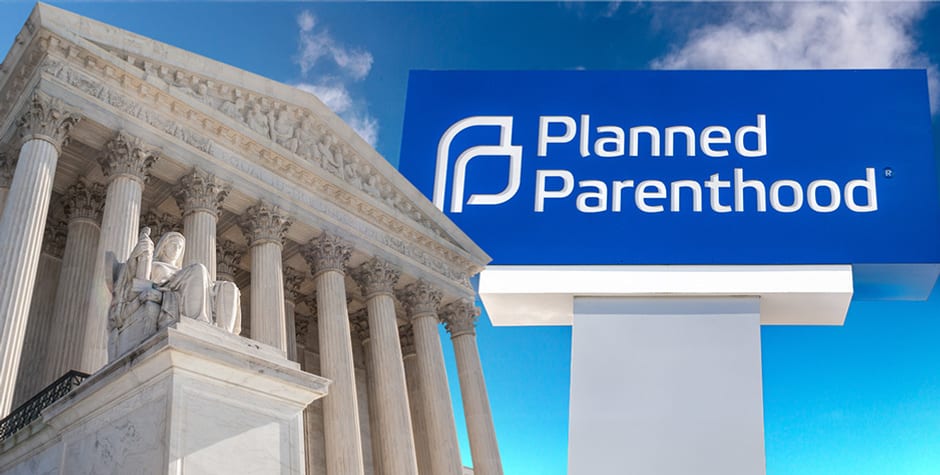ACLJ Files Amicus Brief With U.S. Supreme Court To Allow States To Defund Planned Parenthood
Listen tothis article
The ACLJ just filed a critical amicus brief with the Supreme Court of the United States – in what could be the single biggest abortion case since we helped overturn Roe – in Medina v. Planned Parenthood South Atlantic.
When we last updated you about this hugely important case, the names of the parties were different: Kerr v. Edwards. Although the name of the case has changed, the underlying facts and legal issues remain the same. As we explained earlier, this case arose after South Carolina Governor Henry McMaster issued an executive order directing the South Carolina Department of Health & Human Services (DHHS) to deem abortion clinics unqualified to operate as medical service providers under the Medicaid Act. Providing such services is one of the primary ways that Planned Parenthood gets taxpayer monies from states. Planned Parenthood uses such taxpayer money to subsidize its entire business, which, of course, includes abortion.
Fearing the loss of so much taxpayer money, Planned Parenthood and an individual plaintiff, who had been one of Planned Parenthood’s patients, immediately sued in federal court, challenging the state’s decision. The central issue is whether individual Medicaid beneficiaries can challenge state decisions to disqualify abortionists, like Planned Parenthood, as Medicaid service providers. Several federal appellate courts have held that they can. What that effectively does is coerce states into doing business with Planned Parenthood even though those states otherwise promote the sanctity of human life.
Our brief argues that after the Court’s decision in Dobbs v. Jackson Women’s Health Organization, abortion and state taxpayer subsidization of abortion clinics are matters of state decision-making autonomy. The Medicaid statute must, therefore, be interpreted in a manner that respects state sovereignty over abortion policy. We explained further:
States whose citizenry views abortion as the taking of a human life should not be commandeered by a spending statute condition into funneling taxpayer funds to the very entities that terminate human life, unless those states have “voluntarily and knowingly accepted the condition.” Cummings v. Premier Rehab Keller, P.L.L.C., 596 U.S. 212, 219 (2022).
Congress did not give clear notice in the [Medicaid Act provision] that states would be subject to private rights of action under § 1983. There is no “more direct affront to state sovereignty,” Murphy, 584 U.S. at 474, than reading § 1396a(a)(23) as Congressional authorization for states to be 1) hauled into federal court to have potentially hundreds of their Medicaid service provider disqualification decisions second-guessed; and 2) coerced to funnel taxpayer money to entities that violate the state’s sincere and deeply held views on the sanctity of human life.
Oral argument will be held sometime this spring, and the Court will likely issue its decision by the end of June. This will hopefully be a landmark victory in the fight against taxpayer subsidization of Planned Parenthood.
